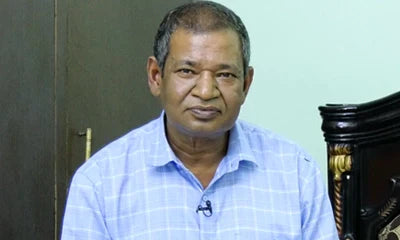Liver Health: How to Keep Your Liver Strong and Functioning Properly

Quick Facts
The liver is a vital organ that plays a crucial role in detoxifying the body, producing proteins, and storing energy. It's involved in more than 500 different functions and is essential for overall health.
Did you know?
- The liver is the only internal organ that can regenerate itself.
- Fatty liver disease affects up to 25% of people worldwide, often without symptoms until it becomes more severe.

What is Liver Health?
Liver health refers to how well your liver is functioning in its numerous tasks, including detoxifying chemicals, producing essential proteins, and storing vitamins and minerals. A healthy liver is vital for your body's metabolic processes and overall well-being.
When liver health is compromised, it can lead to conditions like liver disease, fatty liver, cirrhosis, hepatitis, and even liver cancer. Keeping your liver healthy is key to preventing these conditions and ensuring optimal body function.
Causes of Liver Problems
Liver damage can occur due to various factors, many of which are lifestyle-related:
1. Excessive Alcohol Consumption
Drinking too much alcohol can overwhelm the liver, leading to liver inflammation, fatty liver, and eventually cirrhosis if left unchecked.
2. Unhealthy Diet
A diet high in processed foods, trans fats, sugars, and unhealthy fats can contribute to fatty liver disease and liver inflammation.
3. Obesity
Obesity increases the risk of fatty liver disease and can contribute to insulin resistance, which further strains the liver.
4. Hepatitis
Viral infections like hepatitis B and C can lead to liver damage over time. These infections cause inflammation and can impair liver function.
5. Toxins and Medications
Certain medications and environmental toxins can damage the liver. Overuse of painkillers, especially acetaminophen, and exposure to harmful chemicals can cause liver damage.
6. Genetics
Some inherited conditions, like hemochromatosis (iron overload) or Wilson's disease (copper accumulation), can lead to liver disease.
Symptoms of Liver Problems
Liver problems may not show immediate symptoms, but common signs of liver damage can include:
- Fatigue or weakness
- Jaundice (yellowing of the skin or eyes)
- Abdominal pain, particularly in the upper right side
- Swelling in the abdomen or legs
- Dark urine and light-colored stools
- Nausea and vomiting
- Itchy skin
- Loss of appetite
If you notice any of these symptoms, it’s essential to consult a healthcare provider for evaluation and testing.
How to Improve and Maintain Liver Health
Taking care of your liver involves healthy lifestyle practices that support its natural detoxification process. Here are some key steps:
Eat a Healthy Diet A balanced, nutrient-rich diet supports liver function and helps prevent fatty liver disease. Include the following:
- Fruits and vegetables rich in antioxidants
- Whole grains for fiber
- Lean proteins, such as chicken, fish, and legumes
- Healthy fats, such as those found in avocados, nuts, and olive oil
Avoid excessive consumption of sugary foods, processed snacks, and fried items that can contribute to liver fat buildup.

2. Maintain a Healthy Weight
Being overweight increases your risk of non-alcoholic fatty liver disease (NAFLD). Losing excess weight through a combination of diet and exercise can reduce fat buildup in the liver and improve overall liver health.
3. Exercise Regularly
Physical activity promotes liver function and helps maintain a healthy weight. Aim for 150 minutes of moderate-intensity exercise per week, such as brisk walking, swimming, or cycling.
4. Limit Alcohol Consumption
The liver processes alcohol, but excessive drinking can lead to liver damage over time. If you drink, limit your consumption to one drink per day for women and two for men. It’s also important to take alcohol-free days during the week.
5. Stay Hydrated
Drinking enough water helps your liver flush out toxins and prevents dehydration, which can impair liver function. Aim for at least 8 cups of water a day, or more if you're physically active.
6. Avoid Overuse of Medications
Be cautious with medications, particularly over-the-counter painkillers like acetaminophen. Always follow your doctor’s dosage instructions and avoid combining medications without professional guidance.
7. Get Vaccinated
Vaccination against hepatitis A and B can help protect your liver from viral infections that can cause severe damage. Check with your healthcare provider to see if you need these vaccinations.
8. Protect Yourself from Toxins
Limit exposure to environmental toxins like industrial chemicals and pesticides, as these can damage your liver. If you're exposed to harmful substances in your workplace, ensure you use protective gear.
When to See a Doctor
If you experience symptoms such as persistent fatigue, abdominal pain, jaundice, or unexplained weight loss, consult a healthcare professional for liver function tests. Early detection of liver issues can significantly improve treatment outcomes.
A Piece of Advice
Your liver is one of the most important organs in your body, and taking proactive steps to maintain its health is essential for long-term wellness. By adopting a healthy diet, staying active, and avoiding harmful habits like excessive drinking, you can protect your liver and ensure it functions optimally. Regular check-ups and early intervention can help catch potential liver issues before they become more severe.



